Best of 2021: Lewes FC, the football club of the future?
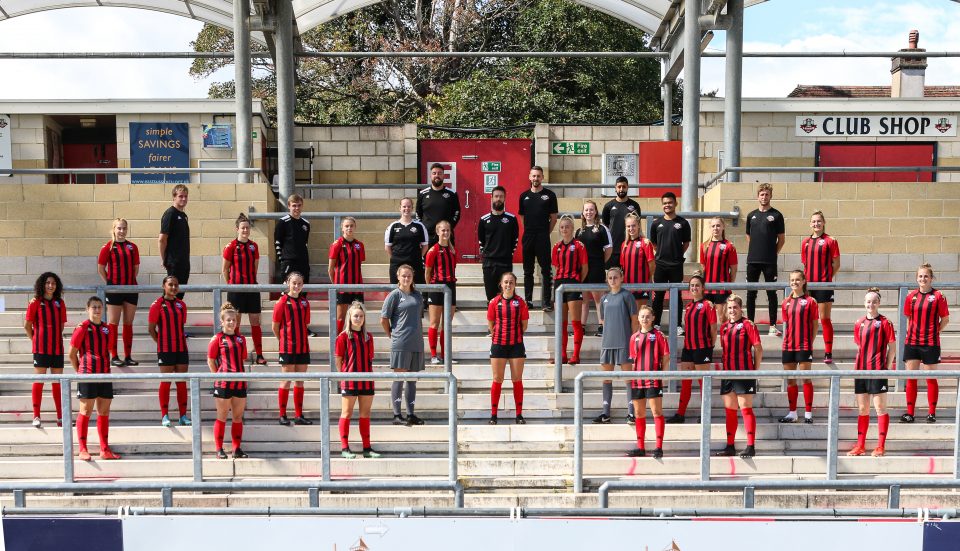
In this article from March 2021, Frank Dalleres speaks to Maggie Murphy, general manager and now CEO of Lewes FC about the club’s pioneering stance on equal pay, how a purpose-led approach can attract commercial partners, and bold plans for the future.
They take pride in doing things differently at Lewes FC, the small football club with big ideas.
From the beach huts that act as hospitality boxes at the Dripping Pan, their distinctive ground with the sunken pitch, to the prosecco served at matches and the pop-culture inspired posters that advertise fixtures, the East Sussex outfit have carved out their own identity.
That identity goes way beyond aesthetics, though. Lewes have been fiercely fan-owned for more than a decade and, in 2017, became the first football club in the world to pay its men’s and women’s teams equally.
Lewes are profoundly engaged with their community and adopt strong moral positions, such as rejecting sponsorship from bookmakers.
In short, Lewes stand for something; and that integrity runs deeper through their DNA than the quirkier aspects of the matchday experience.
Lewes Women’s general manager Maggie Murphy describes their ethos as “always trying to do the right thing above any interest in profit margin”.
She adds: “Other clubs will run campaigns, but they’re quite superficial. It’s the ‘wear a T-shirt campaign’, or the ‘social media campaign’.
“But I think we’re genuinely trying to live it – and it’s hard. We won’t ever just wear a T-shirt.”
It all adds up to some intriguing questions about the role of football clubs, their interaction with business, and how far principled, fan-led ownership can go.
Why Lewes have owners in 35 countries
Lewes FC date back to 1885 but the club’s current direction was set in motion in 2010 when six supporters bought it for £1 to save it from financial collapse.
They resurrected it with the emphasis firmly on community, opened up ownership to anyone and, almost four years ago, took their historic and pioneering stance on equal pay.
The move was one part of the club’s wider Equality FC initiative, aimed at encouraging more support for women’s and girls’ football.
Even for a club whose women’s team play in the second division and their men in the seventh tier, it was radical.
Still, “at least one of the directors finds it a bit embarrassing that it took them so long,” says Murphy, who joined Lewes in 2019 and has a background in human rights and anti-corruption advocacy.
Despite resistance – inevitably, some fans didn’t like it and one director stood down in protest – the move has been widely embraced.
Attendance to the women’s games increased four-fold in two years once Lewes started marketing them equally – and even though they raised the ticket price by 160 per cent.
Three years on, average home gates for the club’s matches in the Women’s Championship and the Isthmian League are both around 560.
“The women’s team has such high stock in the town just because the club has treated them with respect,” says Murphy.
It has given them appeal beyond the town’s 17,000 residents, too. “In women’s football we’re everyone’s favourite second team,” she adds.
Membership has rocketed, meanwhile, to 1,600 owners in 35 different countries who have each paid between £40 and £1,000.
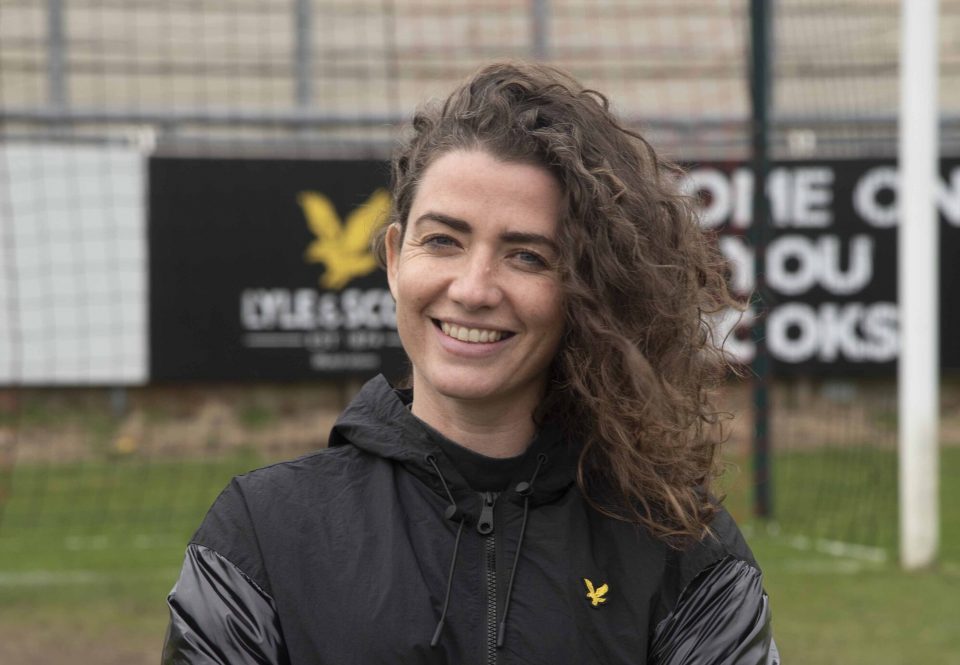
‘If it’s not hurting, it’s not being done right’
Committing to equal pay was anything but a commercially minded move, yet there was still a hope that it might attract like-minded investment.
“I do think the directors mistakenly thought loads of brands were going to come in and say ‘hey, we love that, we’re backing you’,” says Murphy.
“And either the brands were not ready in 2017, or they weren’t interested until they’d seen us genuinely do it and genuinely struggle.”
Lewes turned down some offers, notably from bookmakers. Instead they gave shirt sponsorship to a charity for families affected by gambling-related suicide.
“We’ve been extremely protective of our shirt-front space because if you’re going to put something so close to your badge, it has to be aligned with you,” she says.
Being principled might have bathed Lewes in the warm glow of positive PR, but it was making life more difficult.
“If it’s not hurting in some way, it’s not being done right,” says Murphy.
How Lyle and Scott deal eased Covid crunch
Now, at last, that appears to be changing. Lewes announced their biggest ever sponsorship agreement in December.
The six-figure deal with Lyle and Scott sees the British fashion brand adorn the women’s and men’s kit, as well as incorporating improved club facilities and a content series.
“To have a brand as big as Lyle and Scott come on board has been really significant for us,” says Murphy.
“It’s acted as a sort of validation that what we’re doing is welcomed and supported.”
The Lyle and Scott tie-up could hardly have come at a better time, as Covid-19 played havoc with football’s finances.
Matchday revenue has dried up as Lewes Women have been forced to play behind closed doors, while the men’s team’s last match was in October.
“The fact Lyle and Scott were backing us was extremely helpful, but also in a global pandemic showed that flicker of hope that what we’re doing is the right thing,” Murphy says.
Brands starting to share Lewes FC vision
The club hope that deal represents the first green shoots of enhanced commercial clout.
Times have changed: women’s sport has never been so attractive, while Forest Green Rovers and Right to Dream are showing that footballing success and greater good can coexist.
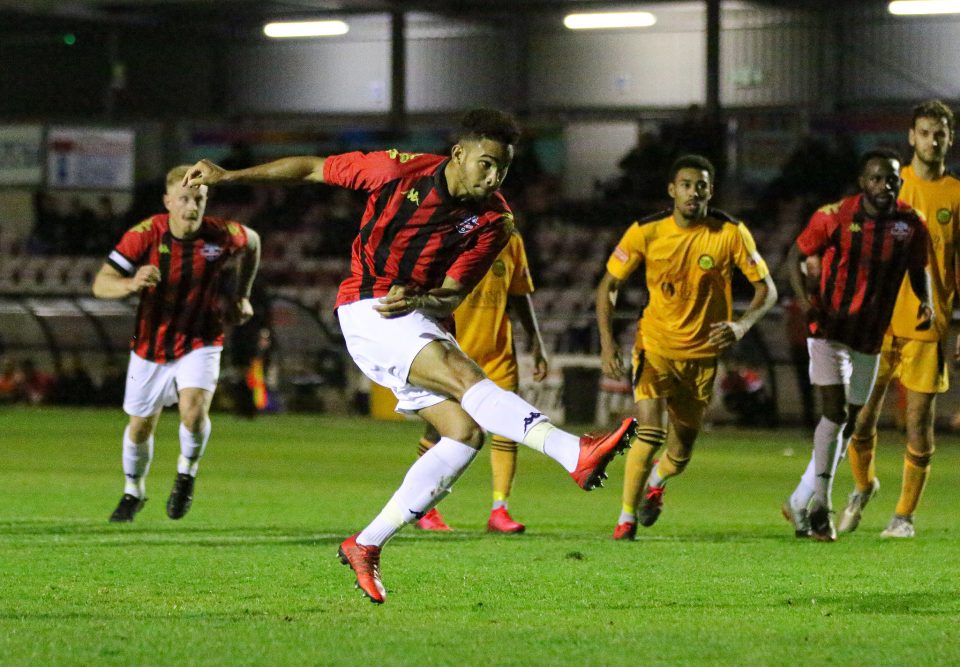
Lewes and Lyle and Scott are already in talks to extend the partnership, while other sponsorship negotiations are at an advanced stage.
Sports business entrepreneur Simon Dent, who has been consulting with the club on commercial matters, believes sponsors are increasingly receptive to Lewes.
“Every brand I’ve spoken to has really leant into the unique space that Lewes occupies,” he says.
“We have some really interesting conversations on the go with brands that share the club’s vision and want to be part of the journey.”
Murphy adds: “If you were going to put in a hundred grand or half a million pounds into a women’s football club, the shift on the dial you can make with Lewes is so much more valuable.
“That’s because we stand for great football on the pitch – that half a million will dramatically help us improve our goals – but we’re also so much more than just a women’s football team.”
If Lewes are a model for the football club of the future, does this mean that football is catching up? Dent thinks so.
“The club’s stance on betting brands manifests this really well. It’s ahead of its time because probably in two years no football club will have an association with a betting brand.
“This is 24/7 and it’s sticking to its principles, which I think a lot of brands now understand, especially in the inclusion and diversity space.”
Community focus pays dividends
Closer to home, having a purpose beyond winning football matches has also paid off financially.
When Lewes found they needed £70,000 for a floodlight upgrade in order to keep their licence last year, the club’s owners chipped in to cover the cost.
Murphy speaks glowingly about the owners’ generosity, but it is also a result of the bonds Lewes have forged with their community.
The club is involved in local mental health, food bank and free school meal programmes. During lockdown, the players have even delivered medicine to housebound locals.
Lewes also help their footballers with career development. Striker Ini Umotong works on their commercial operations, with Dent offering guidance.
On their owners’ donations, Murphy says: “I guess they feel like they’re contributing to more than just a football club.”
Next? Growth, promotion and new stadium
Lewes have come a long way in a decade, but those achievements will be dwarfed if they pull off their future plans.
“Our ultimate goal is to be the most-owned club in the world,” says Murphy.
That would mean eclipsing FC Barcelona’s roughly 140,000 voting members. If that sounds like a tall order, try telling Murphy.
“We’re currently on 1,600 without having tried that hard and even the population of Lewes is 17,000, so it’s not an impossible jump,” she says.
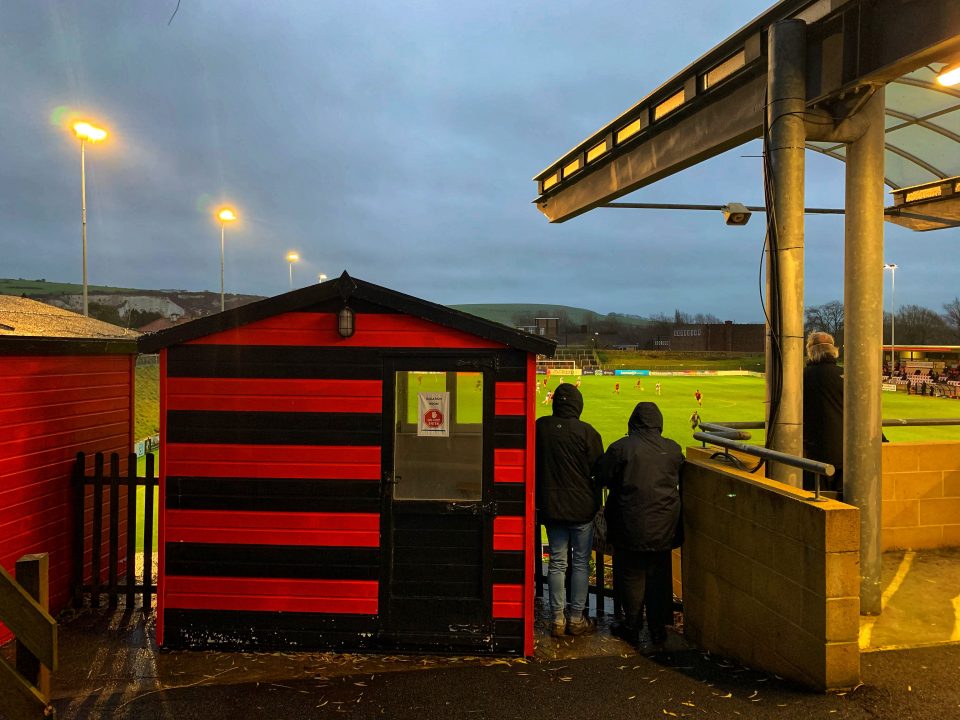
On the pitch, the target is promotion: to the Women’s Super League (WSL) and, for the men, to the National League.
“We would like to be as successful as possible because that also provides us with a greater platform,” says Murphy.
If the women get promoted and the men don’t, Lewes still intend to keep the budgets for both teams the same.
“I think that, ultimately, we have to stick to our guns and continue to split the revenue equally,” she says.
“The more resources we are able to generate that support the men’s team to thrive and prosper can only be a good thing.”
Lewes reinventing the academy system
From next season, Lewes Women hope to replicate a WSL operation to prepare the ground for promotion. That will mean full-time contracts and a doubling of the squad’s £125,000 wage bill.
The year after, the club intend to launch a reinvented academy that addresses shortcomings with the prevailing system.
“Ethically there are huge challenges with boys being sold a dream. And on the girls’ side we do not want to replicate that model,” says Murphy.
Partnering with local schools, colleges and universities, Lewes want to offer a pathway for girls and boys that is as much about education and development as football.
“In the end, if they don’t make the first team it doesn’t matter because they’ll have left our structure as better people, not just better players,” she says.
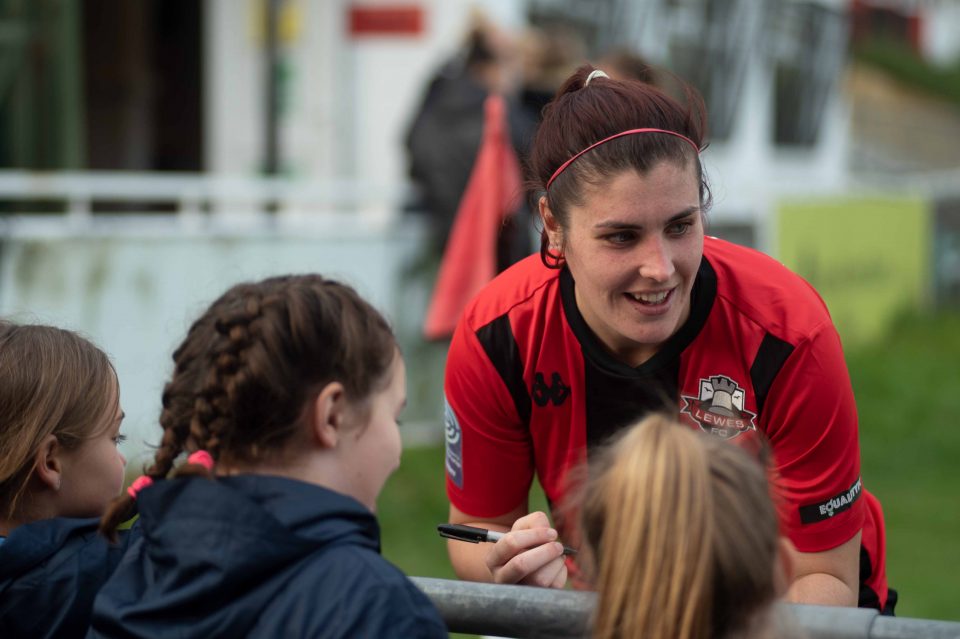
Beyond that, Lewes hope to transform the Dripping Pan – or the Pan Siro, as fans call it in a nod to Milan’s famous stadium.
Murphy says they have already drawn up plans for “the world’s first properly community-oriented football ground, open 24/7 for members of the community to use, not just on match day for a game, and equally inviting for men and women”.
“It’s ready to go if we did find that major investor. It’s not just that we’re looking forward to next year; we are also looking at the 10-15 year plan.”
‘We have to do it differently’
This vision will require more than goodwill alone. It is a series of major capital investments that will likely need unprecedented cash injections to realise.
“We absolutely believe that the women’s team will be in the WSL and men’s team will be in the National League very soon,” says Dent.
“It’s a fantastic time for a brand to partner with the club and be part of the story.”
If anyone can, perhaps it is Lewes and the indefatigable Murphy. Just don’t expect them to change their ethos.
“We believe we can achieve all of those things without following the same route as the bigger clubs,” says Murphy.
She adds: “We have to market ourselves differently and provide the fun quirky little things, like having the beach huts instead of director’s boxes, prosecco on tap and all those small things that we’re known for. We just have to do it differently.
“We’re more innovative and creative and fleet of foot because we need to survive.”
